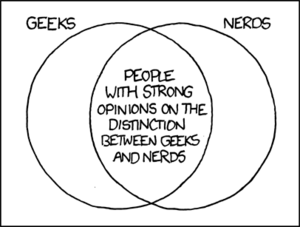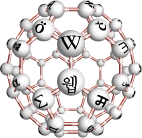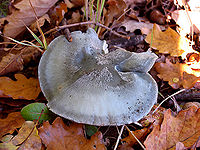DavidM/20100614
I don't like talking about myself, but after I was chastised for simply describing myself as a "big nerd," I decided to try to summarize some current interests for people I've met recently. If you just want to see what I'm up to, skip to #Current work.
After moving to Montréal from Toronto in December 2007, I've managed to take some French instruction, complete Concordia's one-year Graduate Diploma in Community Economic Development, and participate in a few local, national and international projects. Transitioning to Montréal hasn't been easy, without strong French it's like living in a small town with a big city's bureaucracy. I'll take full blame for not learning French better, but I need to find a way to study it full time for an extended period without sacrificing all I'm developing, and even then it will take years of dedication to become fluent. (And, I have to admit I still enjoy feeling like I'm living in a foreign city, but I know I'm missing out on a lot in this wonderful place.)
My work and interests from way back have revolved around developing participatory systems. I'm a strong believer in government, but today's service oriented bureaucracy, with many gatekeepers and alpha-leaders, is just wrong. I want to help get people involved any way they can. So I focus on digital systems and literacy, trying to make Web based systems that are read-write, not brochures. Digital literacy goes well beyond filling in forms, people should be learning about hypertext, content policies, what's happening behind the scenes.
Wikis have been a key tool; I used to develop low-level custom software (source code and database stuff) but now I find Semantic Mediawiki has ways to do most of the things groups need, while preserving the ideals of wiki. Wiki is Hawaiian for quick, while wiki systems can be used for restricted Web publishing, their best application is to allow anyone to quickly edit, as well as follow the low level development of a site, and make activity and content transparent. It does get complicated, but a good wiki will have ways for anyone to quickly participate, supporting diverse roles and interests. Semantic Mediawiki adds in database features, which makes managing structured data easier, so a wiki can contain both free-form pages and reusable data like tables, events, map data, and so on. (see more thoughts here.) Add in a clear and fair content license and it's a pretty good model for shared public data.
I expect the long term results to be significant. As data becomes more linked, quality will increase, and like a puzzle, missing pieces will become evident. With the ability to easily find out answers, useful participation will become something like playing video games, using Facebook, or stamp collecting; creating fun visualizations, adding data, asking simple questions, fulfilling our natural desires to organize in commonly useful ways, making our systems better organized and linked. It will include young and old people. The only thing holding this revolution back is cynicism.
Among the many examples of participatory culture, http://www.openfile.ca is a standout. It's a geographically focused "newspaper" that follows up on community submitted stories, and encourages full community participation in their development. They don't wiki, but they use a Creative Commons license. The UK, led by Tim Berners-Lee (a truly great man), also appears to be sincerely attacking publishing their data in re-usable formats in an open way. Along with many other government initiatives, open inquiry individual and citizen group efforts. Unfortunately, many businesses and non profits still take an opaque, silo approach.
Current work
On to my current work, where I try to balance ideals with realities. To pay the bills, refine technical skills and spread wiki, I work part-time at Concordia's Fungal Genomics lab. That's right, the programme in CED led to supporting scientists working on things like "directed evolution." The goal of the group is to find more efficient enzymes for biofuels. Today's ethanol solutions hardly make sense from an environmental perspective, but growing cellulosic material — trees — is beneficial in the carbon cycle. Fungi are pervasive in nature as part of the cycle of breaking things down, necessary to create efficient biofuels. So our group analyzes tens of thousands of digital genomic samples, and when a likely candidate is found — they grow it. It's pretty cool stuff, and a breakthrough would be huge. Wiki is successfully used for internal communications and for the project's websites.
I am called a Fellow at the Health Innovation Cell in Toronto. The group analyzes technology and social innovation to make recommendations and implement interventions to make the health system more responsive and efficient. I'm quite happy with the web site, from it's Wikipedia-inspired front page (great inspiration, Carlos), to use of wiki to manage content, to its potential as a linked data participant. Good projects are under development, and Innovation Cell has also been a strong promoter, in the health field, of unconference, participant led conferences.
Speaking of Unconference, I'm participating in Rococo 2010, a wiki and Open Spaces (very similar to unconference, with simple rules to help things stay on track and have deliverables) event in Montréal June 25 - 27. Judging from a recent Open Spaces event, it should be great.
I'm also an associate of Equalit.ie, a technical human rights support group, supporting the technical platform and helping to develop a wiki based publishing system.
I'm also helping bootstrap Asian Canadian Wiki, today it looks basic but has some good content and eventually I expect a vital resource.
In June I also had a chance to speak at the Spring 2010 Semantic Mediawiki conference at MIT, and participated in a focused roundtable at Harvard about independent media and human rights groups dealing with hack attacks.
Well, now I'm really tired of talking about myself. I'm working on several other good, formative projects, but always welcome "on the ground" projects with common factors. Getting experience on an "away from keyboard" project is something I'd like to do someday, but in the meantime I always find capacity for good projects with committed partners. I especially welcome opportunities to visit Toronto and other places.
Mushroom image from http://www.geograph.org.uk/photo/27344 , Vinn diagram from http://www.xkcd.com




